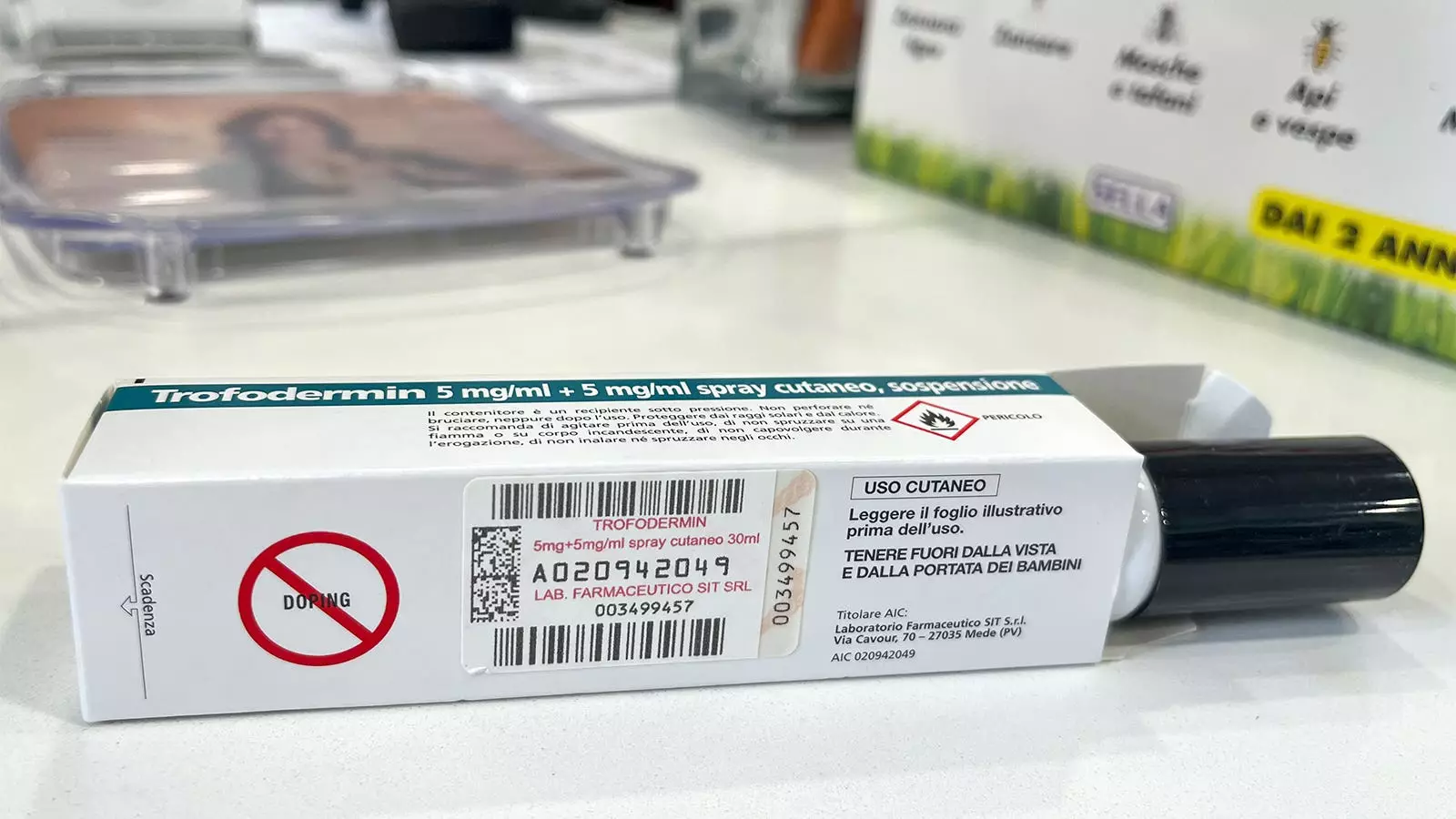The recent incident involving the No. 1-ranked tennis player, Jannik Sinner, sheds light on the pervasive issue of doping in sports. Sinner failed two drug tests in March due to the presence of the banned anabolic steroid clostebol in an over-the-counter spray he used. The spray, known as Trofodermin, is readily available in Italy without a prescription, making it easily accessible to athletes and individuals alike.
Trofodermin has been linked to multiple doping cases, with positive test results for clostebol being a common occurrence among athletes. The warning label on the medication guide explicitly states that the use of the drug without therapeutic needs constitutes doping and can lead to positive anti-doping tests. Despite this clear warning, cases of unintentional doping due to Trofodermin use continue to surface.
Giovanni Fontana, an Italian lawyer with extensive experience in representing athletes facing doping charges, highlights the legal implications of such incidents. In Sinner’s case, it was found that the clostebol entered his system inadvertently through a massage from his physiotherapist, leading to his positive test results. Fontana emphasizes the need for strict adherence to anti-doping rules and regulations to prevent such incidents from occurring in the future.
The inadvertent use of banned substances such as clostebol can have a significant impact on an athlete’s career and reputation. In Sinner’s case, despite being cleared of any intentional wrongdoing, the incident has raised questions about the oversight and responsibility of athletes and their support staff. Sinner’s decision to terminate his relationship with his fitness trainer and physiotherapist underscores the seriousness of the situation and the potential consequences of doping allegations.
The case of Jannik Sinner serves as a wakeup call for the sports community regarding the need for enhanced regulations and oversight in the fight against doping. The discrepancy between Italian law and international anti-doping regulations regarding the labeling of banned substances highlights the loopholes that can be exploited by athletes and support staff. It is crucial for governing bodies, such as the World Anti-Doping Association and national anti-doping agencies, to collaborate and strengthen their enforcement efforts to maintain the integrity of sports.
The doping incident involving Jannik Sinner underscores the complex challenges faced in combating the use of performance-enhancing substances in sports. The blurred lines between therapeutic treatments and doping violations require a comprehensive approach involving education, regulation, and strict enforcement. Athletes, support staff, and governing bodies must work together to uphold the principles of fair play and sportsmanship, ensuring a level playing field for all competitors. Only through collective efforts can we preserve the integrity and credibility of sports in the face of such challenges.


Leave a Reply